A scar the size of a small spider mars the left side of my head. It holds the memory of a four-year-old boy, who only knew war for the first four years of his life. His playground was an empty field and his toys were cannonballs, found among the ruins.
One day, this boy fell into a deep sewer and slit the left side of his face. He cried hysterically while his mother frantically searched for him. When she finally found him at the bottom of the hole, he was unconscious, severely hurt, with a deep cut that required stitching.
I was that boy, and I have the scar to prove it. It looks menacing, with a tail like a scorpion, full of poison. It earned me stares, cruelty from the kids at school and eventually the nickname Scorpion.
Every scar that mars my body tells a similar story. I am a child of war, born in the middle of the eight-year Iraq-Iran war from 1980 to 1988.
My family moved from one place to another since we lived at the epicentre of the war. Additionally, the Kurds tried to hide the identity of their males to avoid them being forced to join the Iraqi army. Being born as an unidentified person coupled with the battle scars I had obtained traumatized me.

Barbarity and brutality became an obvious feature of the country as people, including children, turned against each other. Most of my generation has several battle scars. The scars are so visible and I am still embarrassed to see them after three decades. I count the spots one, two, and three… I eventually found ten. Each scar represented war and has a deep tragic memory.
Physical and emotional scars
Saddam Hussein’s regime used chemical weapons against the neighbouring town of Halabja and killed around 5,000 innocent civilians. My parents escaped to a suburban village in Sulaymaniyah City. There was a lot of brutality and violence. One cold gray day in the fall of 1989, for no apparent reason, I was severely injured by a wild boy as I left our home.
A boy from the neighbourhood stood two storeys up from an adjacent building and threw a block of cement with nails. It hit me hard on top of my forehead and I immediately passed out bleeding profusely. I did not know what had happened to me or who picked me up from the ground until hours later when I found myself on my mother’s lap.
My head was severely injured, but there were no doctors or medicine. My mother put a fried egg on the wound and tied it with a rope as a way to reduce the tissue of the scar and heal it. Although she often said the wound would heal, it left two parallel scar lines which will remain with me forever
The scar on the right side that looks like a waning moon is my third largest scar. I was 7-years-old when my family fled to Mariwan in Iranian Kurdistan to escape threats from Saddam Hussein in 1991. We were sheltered in a remote village called Darzyan. We fled with only the clothes we were wearing and started from scratch.
One day, I went with my older siblings and started working to strip off bark from chinar wood (from a tree used for building) to earn some money because my family suffered from hunger. During the work, I saw a donkey pass by us and my elder brother, Ary, told me to take it for myself. Happily, I ran and stopped it, but I did not know how to tame it. I held its tail instead of head and my siblings shouted at me to leave it, but I insisted on not giving up. After a few hours, I saw myself in a hospital after the donkey kicked my forehead.
According to the Iranian regime, we were referred to as Iraqi foreigners and we had no rights to any health benefits. As a result, I was not treated well at the hospital. The scar did not heal well and I was discharged too soon. Every day I bled painfully as the hairless wound healed, it took on the appearance of a deteriorating barren land.
I now live thousands of miles away from the country where I grew up during the war but the sounds of the police cars, warplanes, cannons, bullets, and ambulances still echo in my ears.
Dealing with trauma
The dark days have passed, but the unpleasant memories may never go away. I do not want to resurface the skin of the scars because the visible scars will always symbolize my emotional scars.
It had been a long-time since I had tried to figure out how to alleviate the past trauma to regain emotional normalcy. Doctors’ treatments or counsellors’ advice had not helped much. Later, I came to find out that writing and sharing stories were the greatest therapy for me. This helped me to not only talk about myself but also about my people and their struggles.
When I started writing my stories in Canada and sharing them with people, I could finally express myself and pour out my long-time sorrow and allow readers to become familiar with what happened to me and my people.
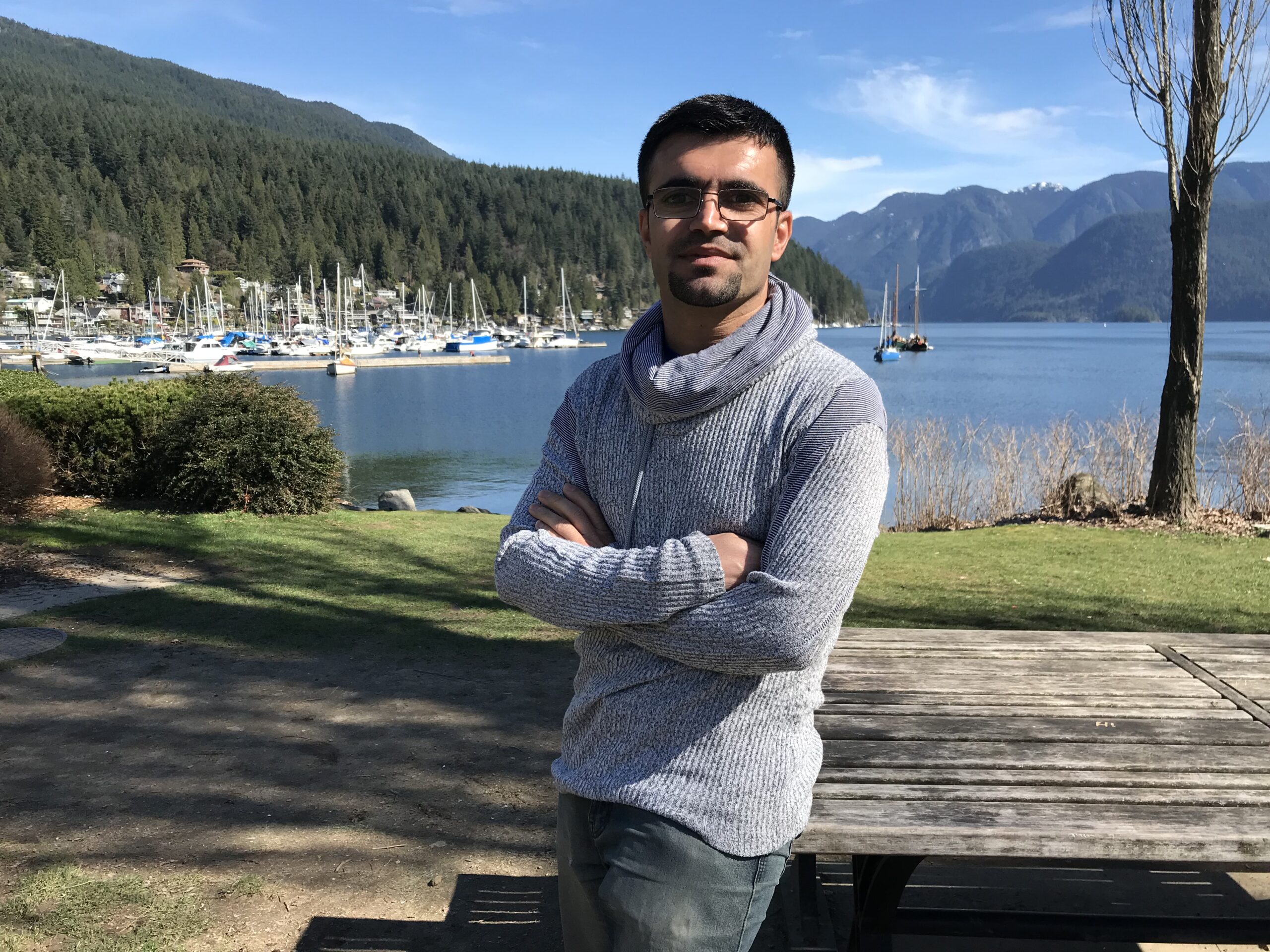
Parallels in history
The other day I phoned my mother regarding her knee replacement surgery. As usual, we talked through several new occurrences and events. She swiftly stopped talking about her severe knee pain and mentioned the war in Ukraine. She expressed her concerns for the Ukrainian mothers who had fled to neighbouring countries just as we had fled during the Kurdish exodus to Iran in 1991. I envisioned my memories of 40 relatives cramming themselves into a tractor to flee, and after 31 years I’m met with the same images, seeing Ukrainian children crammed into trains to Poland.
Many Kurds have similarly expressed their concern for Ukrainians as they remember their difficulties and struggles with brutal neighbouring governments. The painful memories and the scars they came with still remain.
Besides several facial scars, I have emotional scars from the several terrible nicknames that brought me more pain. They were times I wished I was not born or had died during the wars. My thoughts, feelings, memories, imaginations, and dreams were never those of an average child.
I now realize it was neither my fault nor the savage boy who inflicted the pain that caused one of my scars. We were the generation of war and became the machine of wars and now I worry for the Syrian children, Ukrainians, Ugandans, and Iraqis who have become victims of wars like me.
___________________________________
This story was mentored by Paula Arab.
Diary Marif is an Iraqi Kurdish journalist based in Vancouver, Canada. His writing has appeared in the Awene weekly, Livin, and on KNNC TV as a documentary researcher by the name Diary Khalid. Diary earned a master's degree in History from Pune University, in India, in 2013. He moved to Vancouver in 2017, where he has been focusing on nonfiction writing. He can be found on Twitter: @diary_khalid.

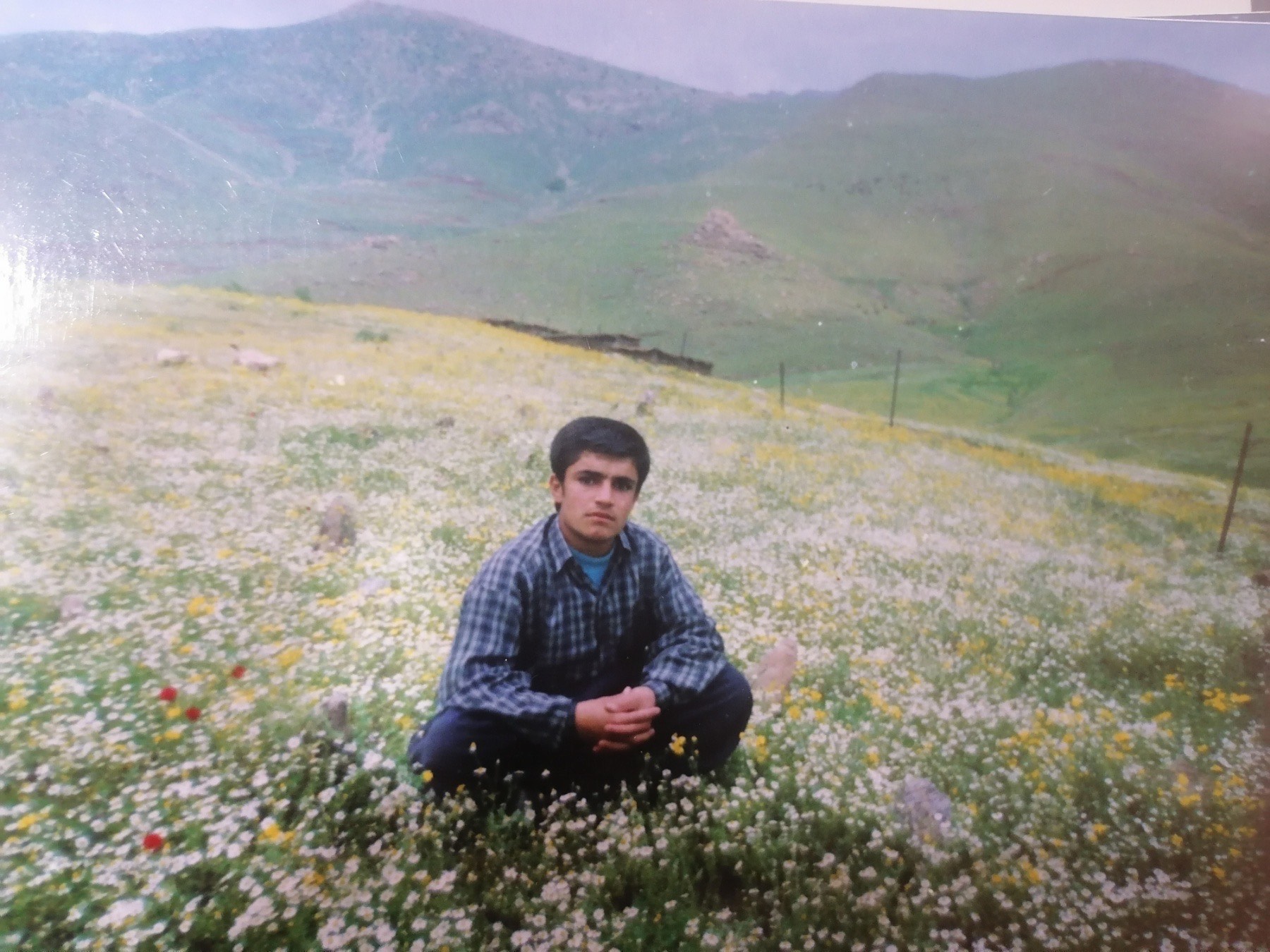
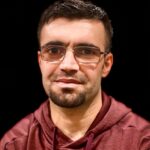
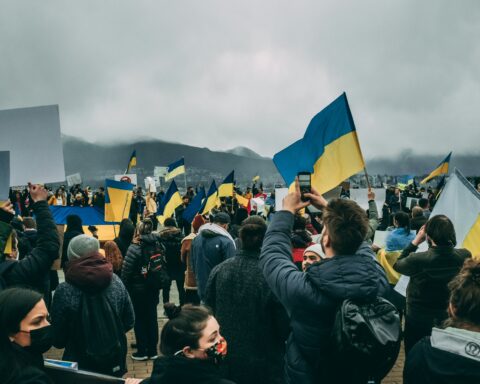
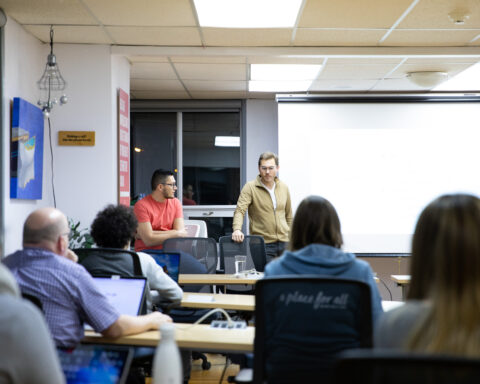

It is a real depiction of a series of consecutive war stories that the Kurds were exposed to. The wars have come to end, but their legacies and mentalities still overshadow our life.
Diary Marf is a true representative of war victims who revolts against war.
Actually, I have found myself among words during reading the above story.
The writer has extremely and truly pointed out the story of every single child who bornt in last two decades of 20th century.
Actually, I have found myself among words during reading the above story. The writer has extremely and truly pointed out the story of every single child who bornt in last two decades of 20th century in the Kurdistan region located north of Iraq.
Reading Dairy’ s story is a n opportunity to learn about the political context of Khurdistan in times of war that for many Canadians is complete unknown. Through his personal experience Diary takes us to those days of Sadam Hussein regime, by doing that we reflect about the suffering of the people that had no other option than escaping to other countries. Dairy s invites people to reflection of life. When I read his articles, I learn to value the essentials and appreciate the bravery of others in search of a better life.
Diary, you truly are a valuable and true hero! Many children and adults, like you, have been through and continue to be affected by this heinous situation. Everything you’ve been through has made you stronger and braver; it’s all over now; forget about these painful memories and replace them with positive ones. Nothing, dear friend, lasts forever! We all go through trials and tribulations, but we always triumph! I admire and admire you for being who you are: intelligent, nice, charismatic, and beautiful! I greatly appreciate you and am delighted to have you as a writing neighbour! My heartfelt hug.
Diary, you truly are a valuable and true hero! Many children and adults, like you, have been through and continue to be affected by this heinous situation. Everything you’ve been through has made you stronger and braver; it’s all over now; forget about these painful memories and replace them with positive ones. Nothing, dear friend, lasts forever! We all go through trials and tribulations, but we always triumph! I admire and admire you for being who you are: intelligent, nice, charismatic, and beautiful! I greatly appreciate you and am delighted to have you as a writing neighbour! My heartfelt hug.
From tenant of candela’s place
“Over the last ten years, more than 80 percent of the victims in more than 100 war conflicts have been civilians. There has been a rapid advancement in research into the psychosocial consequences of war on the civilian population, which is the primary target of casualties in modern warfare.”~Monica A.Urbina C.
War is a term that is inextricably linked to human history and disasters, catastrophes, or emergencies. War is the extension of politics through other means… War is more than just a political act; it is a real political instrument, a continuation of political relations, and management of political relations by other means, and it leaves an emotional gap for those who have lived through it, as your Diary shows. You are a HERO, as Rosario A. Naranjo stated. But what you’ve been through, like anything else, is a difficult challenge that will only compel you to live with additional traumas in the future, but in order to overcome it, you’ll need more than just therapy and support from other people. However, discussing these topics is always a tough question to handle and, it could be said, impossible to answer definitively.
My counsel to assist you to overcome the stigmas of society or the traumas caused by the war in your nation is the same as I always provide to others who have gone through similar experiences, and it is as follows:
Positivism: This can be a little tricky for some people because it is also influenced by biological and genetic variables, as well as the chemistry of each person’s reward circuitry. And asking ourselves if there is any rational justification for feeling pessimistic about a scenario is the inquiry that will lead you to a trustworthy remedy to help you get back on track.
Altruism and compassion: it allows us to develop greater patience and look at what is occurring more collectively; it is a strategy to profit personally, but the truth is that there must be a genuine care for others (and in addition comes the benefit).
Strong sense of ethics: It is used when you have a core of values that you cannot shake. One aspect of this is a strong feeling of what is and is not proper, what to do and what not to do. By embodying those principles, we have an axis on which to base ourselves and a sense of self-realization. Giving Meaning to Life: enhances our personal appreciation for what we do and provides focus and justification for all of our efforts.
Finally, the Stockdale Paradox: accepting reality without losing hope that something will change and remaining certain that things will work out while accepting the circumstance as difficult as it may be.
That is why I give you my advice, even though I believe you don’t need it, because you are a SURVIVOR and a MIRACLE to be in Canada and to be an example for those children who are suffering as a result of a country’s war, and many of them will see you as ANOTHER HOPE TO LOVE LIFE because of your example.
Marif’s hearfelt story depicts an example of the struggles the Kurdish have suffered as a people. His story is also a reflection of human suffering in the face of resilience. It not only illuminates how past trauma can be used to share to others about our world around us, but also how ones stories can be used to find a place for deep healing.
So sad story, well done Mr. Diary.
Unfortunately Kurdish history full of sad story like it, which We faced International crimes.
This is an emotionally heartbreaking, unapologetically raw, and eloquent way to open up and expose to the world the scars of war. Mr. Marif speaks of his visible and invisible scars and shamelessly tells what he was made to feel ashamed of and disguise from the world to blend in with the crowd. Silencing the suffering of children, distracting the world from what happened and conditioning humanity to “move on” from what truly happened is what I believe perpetuate the relentless and needless wars to this day. Mr. Diary Marif is pressing (Pause) and reminding those that ‘call the shots’ to see the lasting damage of their actions. This piece has the potential to permit other adult children of war to speak up and empower those suffering in silence that their voice matters and their scars matter, and they are not forgotten.
Change in our world and peace can not happen unless humble writers such as Mr. Marif open the eyes of the world to the ripple effect of the war even decades later and thousands of miles away. The damage the war causes last long after the bleeding stops, and as I wrote in my published poem in 2019, “Over there is here”, it is here, and it is now. Just as the ripple effect and impact of one human error that caused a ship to block the Swiss Canal back in March 2021, so is the war that rages on due to some men that decide the fate of millions when raging a war.
Unfortunately, unlike the ‘accidental’ blocking of a major international shipping artery, the horrific lifelong trauma of children of war does not get exposed. Stories such as Diary and million children suffering right now do not get an update on hourly bases. Such raw stories do not get live updates on mainstream media outlets because they are not vital to a company’s bottom line, nor does it matters to shareholders that care only about profit.
This incredible eye-opening piece by Mr. Marif truly expresses in plain English who should be writing history and who should change the destructive course we are on right now. Forgetting such heartrending and gripping stories will cause harm to not only survivors of war(s) and us as Canadians living in a society that is oblivious to the fact that we are not immune to the life that Mr. Marif lived. Unspoken and silenced stories of children that grew up in wars are a “get out of jail” free pass to world leaders who rage wars and carry on unpunished. As a child of war myself and as a poet and an author, I believe the path of our civilized society is paved by children who world leaders and mainstream media spectators considered at one point in history as nothing but collateral damage and easy to forget. Here in Canada, the stories of the thousands of missing and murdered residential school children testify to this reality. Well, Mr. Marif, you are a hero and a force to be wrecking with because you are exposing your scars, and for that, I thank you from the heart. Please keep writing.
Well done, really amazing story, since you mentioned the details. unfortunately, million of children still suffering the difficulties like you me. good job🙏🏻❤️🙏🏻🙏🏻.
When I read this article I remembered years of my life I preferred to forget. Diary has not written his only memories. He wrote the memory of all the human beings once stuck in war in their life. I can see all the grief Diary expressed through this writing. It may be difficult for those who have not lived in war to understand it and I don’t blame them for that. But those who have experienced days of their life in war feel the pain each of us once had and can see the scars in our memories. I’m happy that Diary has the courage to talk about his physical and psychological scars. This tells us how people need help and rescue from war on the other side of the world. Life is short. We spent most of it in war. Diary and those who write such subjects represent the spirit of the victims of war. I wish one day all what Diary mentioned just be memories of human beings and to not see anymore victims of war. Great job Diary. Please continue on this and never stop of expressing your feelings.
This is the story of most of us, Diary is a sample of thousands kurdish children of that time…
Well done my friend, you expressed it perfectly, this article gives us a real sense and a bright picture of that time..
wish you all the best..
Thanks for shedding a light on how the generation of that time lived under Baath Regime. It also shows how parents hesitated to send their children outside to play with the remnants of war. Unfortunately, that leaves many emotional and physical scars.
You are very talented in writing. I like your writing. All the best to the best.
Thank you for sharing your story. A four-year-old who instead of playing like the rest of the world’s children recalled his playground was an empty field and toys were cannonballs and his mental wounds remain today. The reports showed in 1988 Saddam used a chemical-gas attack against the Kurds population in Halabja, which killed up to 5,000 Iraqi Kurds.
The relationship between the Kurds people and the Baloch people is very old. During the 15th century, Kurds tribes arrived in Balochistan since they are there. For centuries Kurds and Baloch nations were deprived of freedom of speech, and linguistic, cultural, political and economic rights. The irony is both Muslims have been enduring oppression and injustice by the occupying and undemocratic Muslim rulers such as Syria, Turkey, Iraq, Iran and Pakistan. Therefore, Kurds and Balochs struggling to decolonize their homeland hope, that the UN and the international community will notice the needle in the haystack of the slow genocide of Kurds, and Balochs people and save thousands of Kurds and Baloch children like you who are today going through the same agony.
You are fortunate to be in Canada where you got the freedom to express yourself freely and tell us your story.
Sadly, I could say that I could relate to every single word Mr. Marif is saying, and I’m certain that stories of this kind haunts all of us Kurdish people all over Iraq, Iran, Turkey, and Syria.
Thank you Diary for sharing this!
Diary, your story is very touching.
It’s an example of those kids who were born and grow up in a war situation. Those kids are innocent and didn’t know anything about why society has to kill each other instead of trying to solve any conflict in a civilized way. Which is way easier and healthier. But some superpowers, rich and corrupt, want to create war and make money at the cost of children like you. As you mention in your article, the Russia and Ukraine war is the latest example. More than 6 million innocent Ukrainians are misplaced and thousands lost their lives, and leaders claim that they are winning the war. It’s a joke!
In a war, no one wins.
Good job, Diary!
Beautifully written Diary. Thank you for sharing your story. Your scars, both physical and mental serve as a testament to the brutality and senseless evil of war. The impact of war on a person is not short lived but forever lived thru them and their descendants. May your writings heal you and educate others.
Thanks for such a great story as always, Diary.
What you’ve gone through is the story millions of other Kurds. It’s sad to see that the same thing happens all over again and places like Afghanistan and Ukraine. Hopefully, people will learn and from your story and others to avoid wars and conflicts.
Thanks Mr. Diary for sharing your story. You clearly represents the dark history of kurdish people under dictatorship.
This Story shows us the scale of the catastrophe caused by the war and it’s repercussions.
Dear Diary,
This short article of your battle scars leaves me saddened. It is a reminder of the cruelty of tyrants and war. Your scars mark the events of your life, and yet, in the midst of your wounds and painful memories, your compassion remains and alerts us to the ongoing suffering of others.
Keep writing, Diary. Keep reminding us, especially those of us who are privileged to have a life of peace and plenty and have never experienced war.
Best,
Raymonde
Hello Diary, I am old enough to remember many of the dreadful stories of the Iraq-Iran War which were in the news during the 1980s; in particular the tragedy of Halabja. I found it hard to imagine then, just as I find it hard to imagine now, how people can do such horrible things to one another. Your story reminds me that such events are not just something in the news. I shudder to think how many lives and how many stories of such lives such as yours have been unseen and unheard. I appreciate how you have put another human face on such events through the stories you have shared. Hopefully, other people who have had similar experiences can read your work and in some way benefit from what you have written. Keep writing, Diary, not just for yourself but for others as well.
I found this an intriguing story of the war and the scars you received and the injustice you lived with in that town and country . I’m proud of you for sharing your personal experience of your traumatic past out to the world, your scars, how you got them, and what they meant to you emotionally. I’m proud of you for sharing it, because it probably must have been tough for you sharing your traumatic childhood, or that’s what I assume, I could be wrong.
Dear Diary, Thank you for reminding us about Kurdistan situation. As Mr Muhammad mentioned above, I also have found myself among words during reading your story. your story is one of the best representative for clarifying how hard is to live in Kurdistan. May ALLAH bless you for the rest of your life.
Thanks once again
Thank you for sharing your story,it was heartbreaking, when i was reading the above story. i remember allot of pain The writer has extremely and truly pointed out the story of every single child who grow up in last two decades of 20th century in the Kurdistan region located north of Iraq.
Diary is a real man who has potential to be a real hero
Your story was break my heart remind me childhood Its true for most people who has Ben born in that particular time
Your story was break my heart remind me childhood Its true for most people who has Ben born in that particular time ,kipp going diary you will be a real hero
dear deary was a friend wth my ancles, and also ias my good friend when he was in kurdistan
thank you for shairing your story mr.dyary
I suggest to you, also talking about my story😇
Truly and tragedian story, you could show us a visual memorial within your text.
We are all living with post trauma even by the history.
Well done Mr.Diary
I really enjoyed this honest and emotional narration. It tells the story of many war victims, how dreadful it is, and its life-long negative impact. The author’s first-hand experience makes the article more tangible and makes the incidents alive. Fortunately, Diary has come out of the negative experiences that happened to him from a very young age and overcame the trauma. Not everyone in his situation would be that lucky. I like how he counted the physical scars on his face and explained their causes. I think he could capture and narrate the essence of the events in an effective way. He also, made us aware of the atrocities his community experienced, an experience that unfortunately is much too familiar to many people across the world. Names, dates, places and events might be different, but the suffering people experience in war is the same across the world and history. The article can inspire others. I wish Dairy success in his future writings.
Can’t describe how fantastic it was! The story was a quick clip of Kurdish people’s sufferings since they are exist! Just enjoyed evey sentence that made to think how unlucky we are for being part of the Middle East and more specifically in Iraq! May God bless Kurdish people from any further misfortunes. Well done and thank you!
According to what I have read in your article about these bloodsheds, I have two points for you. First, you explained a small side about the suffering of the Kurds in the Middle East and between every country and its tyranny over the Kurds. Unfortunately, it is a very sad aspect in the lives of most Kurds. Secondly, I congratulate you on the beautiful way you wrote, you made us feel as if we lived with you all that you were exposed to and we understood everything clearly.
Deary, this is a beautifully written article, a true story, heart wrenching and sad yet a great teach for those who have life easy and full. Although I am sorry for what you went through , it has made you stronger and resilient and now I am happy that you have a wondaful life. Please try and forget the past and walk into the sunshine of a wondaful future which I am sure you will now always have. May god bless you with all the goodness that life can give and may you always be happy ..God Bless you and all your family and may you never have trying times again.
A lot of people are struggling in various ways throughout the world, some by their own hand and some at the hands of others…we live in a world sans values and so they are indeed trying times , but we have to be strong for many rely on us and we must forge ahead in the hope that good times will come and this too shall pass…..
Dear Mr.Diary, Thanks for this beautiful and true story! We need your voice to continue telling many untold stories of Kurdish people, of the bravery and the suffering that our people are still facing, unfortunately.
Your stories help us as Kurdish people to always remember to be a voice of ourselves and how those pins give us strength.
Also, it is a great thing for other people who have never been in that situation to learn a lot bout how we lived and what we went through since we were a child we have been looking for a home and secure!
Thanks for sharing your story and giving me a better view and perspective on the life and hard-shipfaced by the Kurdish people.
The Diary story is very touching . Simply to say expressing brutality of war on common innocent people. Children always suffer the most.
Dear Diary,
Thank you for sharing your story. War results in collateral damage where people who are not involved in it have to face the consequences of the war. For the simple reason that their identity is problematic for the ruling elites.
While your story will bring hope for Ukrainian at the same time raises the question as to how as human we have not evolved. The pain, trauma inflicted on people to hold power and control is unfortunate.
I also feel at the same time you should be provided a wider platform, as your resilience and faith have brought you a long way. You deserve to tell your story to wider audience to help humans to reflect on the actions and the consequences it brings to innocent people. I hope you are able to write your own book someday or share your story on Ted Talk as well.
I have watched on the news what I thought was the events of the war, but hearing a first hand experience from someone who actually lived it, has changed how I feel about I feel about it. I have gotten to understand it more.Thank you for sharing this story .